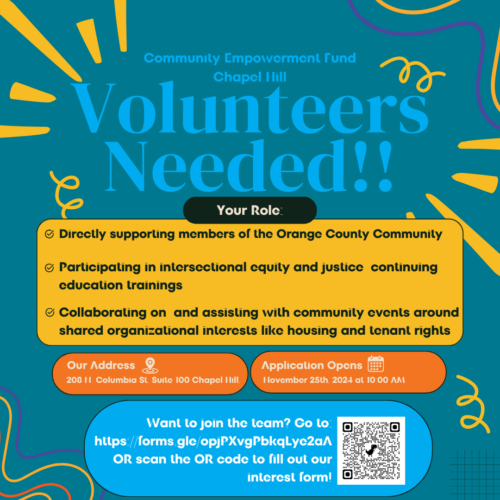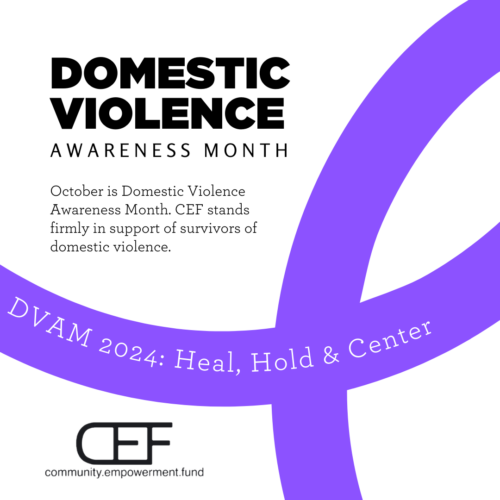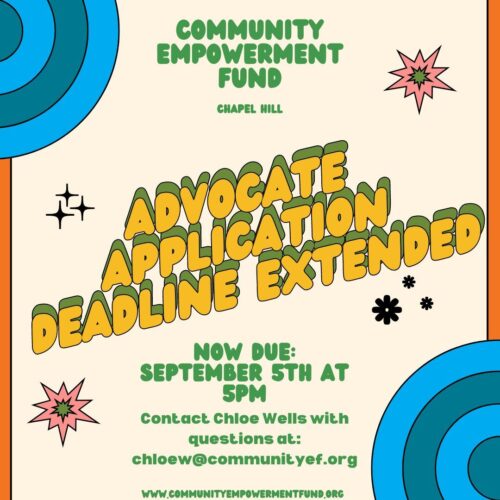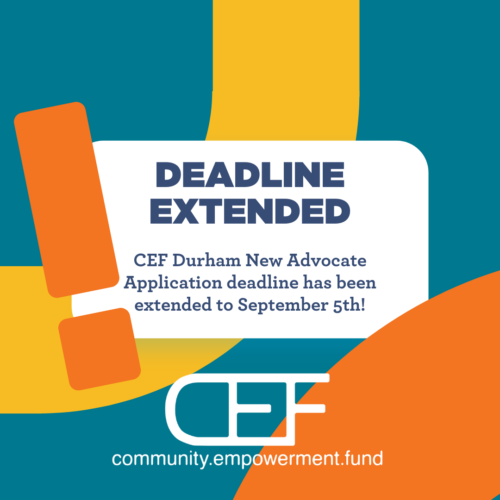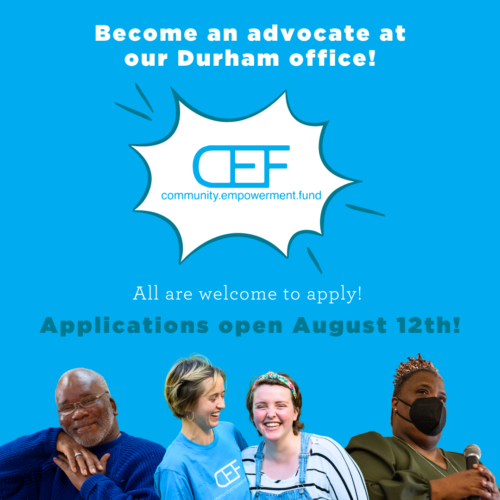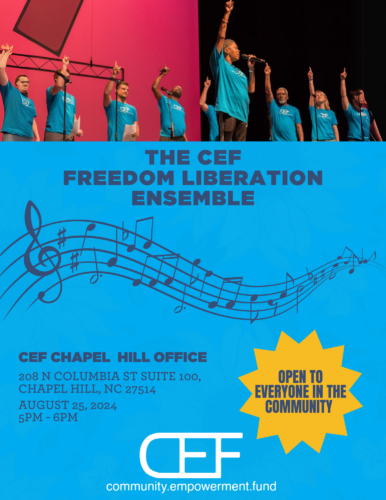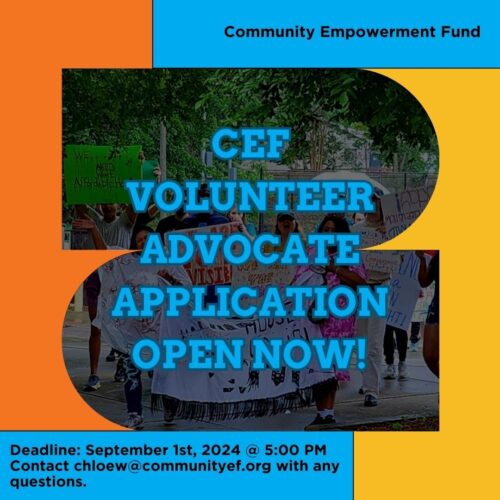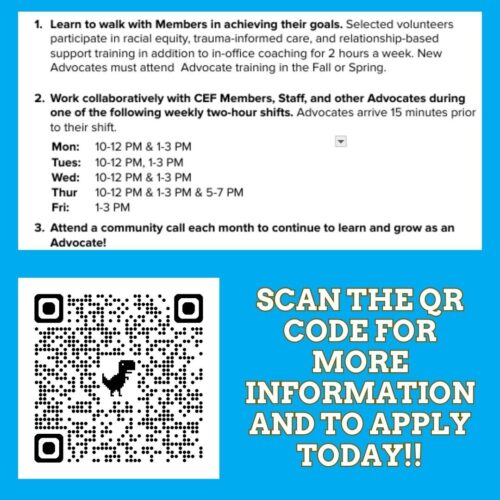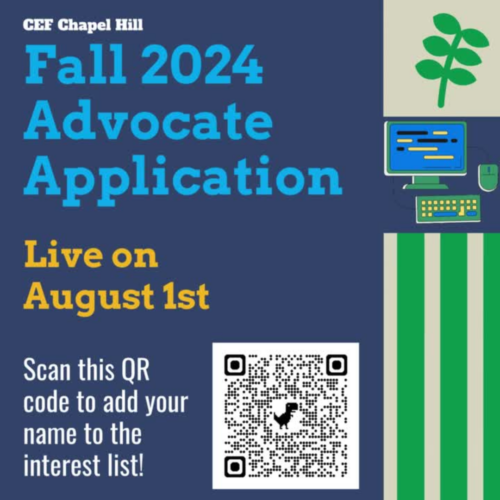Hey community! Chloe, our Chapel Hill Advocate Program Coordinator, wanted to let everyone know that the Advocate application for our Spring 2025 recruitment cycle will be officially opening on November 25th! If you are interested in becoming a volunteer Advocate, please scan the QR code to complete the interest form and Chloe will share the application with you. You can also copy and paste this URL: https://forms.gle/opjPXvgPbkqLye2aA.
CEF is seeking volunteer Advocates who can commit to working with Members over the long haul – before, during, and well beyond their transitions out of housing insecurity. Volunteer Advocates can be anyone: undergraduates, graduate students, faculty, staff, and even community members! Responsibilities include committing to weekly meetings for two or more years and utilizing anti-racism tools to advocate for Black and Brown Members in a larger context. A great Advocate is someone who is committed to lifelong learning! If you would like more information about what the role entails, feel free to contact Chloe at chloew@communityef.org. We are already looking forward to welcoming new faces this spring!!

